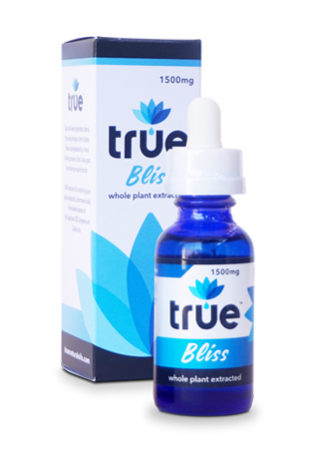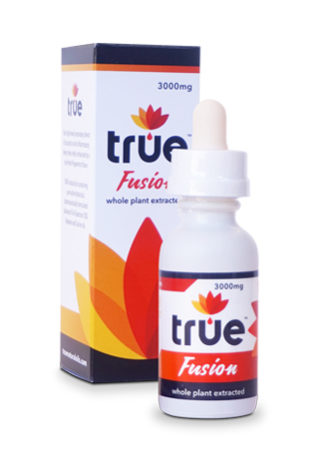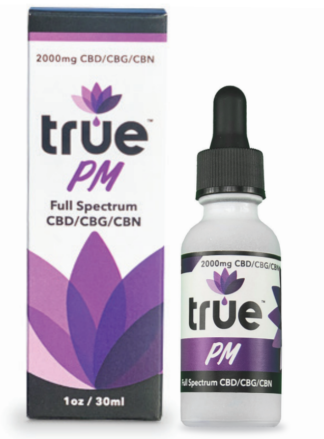CBG, or cannabigerol, is a lesser-known cannabinoid that is found in smaller amounts in the cannabis plant. It is considered a “stem cell” or “mother” cannabinoid because it is a precursor to other cannabinoids such as THC and CBD. CBG has been studied for its potential anti-inflammatory, antibacterial, and neuroprotective effects. CBG has also been studied for its potential use in treating glaucoma, inflammatory bowel disease, and other medical conditions:
- Glaucoma: CBG has been shown to have potential neuroprotective effects and may be useful in treating glaucoma, a condition that damages the optic nerve and can lead to vision loss. Merrick J, et al. (2016). Identification of psychoactive degradants of cannabigerol in artificial gastric and physiological fluid. DOI: 10.1007/s00216-015-8688-4
- Inflammatory bowel disease (IBD): CBG has been shown to have potential anti-inflammatory effects and may be useful in treating IBD, a group of inflammatory conditions that affect the digestive tract. Borrelli F, et al. (2013). Beneficial effect of the non-psychotropic plant cannabinoid cannabigerol on experimental inflammatory bowel disease. DOI: 10.1038/srep04216
- Cancer: CBG has been shown to have potential anti-cancer effects in some preclinical studies, and may be useful in treating certain types of cancer.
- Huntington’s disease: CBG has been shown to have potential neuroprotective effects and may be useful in treating Huntington’s disease, a rare genetic disorder that causes progressive degeneration of brain cells. Valdeolivas S, et al. (2015). Neuroprotective properties of cannabigerol in Huntington’s disease: Studies in R6/2 mice and 3-nitropropionate-lesioned mice. DOI: 10.1016/j.ejphar.2015.07.011
- Bladder dysfunction: CBG has been shown to have potential therapeutic effects on bladder dysfunction, including overactive bladder and urinary incontinence.
- Antibiotic-resistant infections: CBG has been shown to have potential antibacterial effects and may be useful in treating antibiotic-resistant infections caused by bacteria such as MRSA. Appendino G, et al. (2008). Antibacterial cannabinoids from Cannabis sativa: A structure-activity study. DOI: 10.1021/np8002673
- Psoriasis: CBG has been shown to have potential anti-inflammatory effects and may be useful in treating psoriasis, a chronic inflammatory skin condition. Wilkinson JD, et al. (2007). Cannabinoids inhibit human keratinocyte proliferation through a non-CB1/CB2 mechanism and have a potential therapeutic value in the treatment of psoriasis. DOI: 10.1111/j.1476-5381.2007.00379.
- Pain: CBG has been shown to have potential analgesic (pain-relieving) effects and may be useful in treating various types of pain, including neuropathic pain. Russo EB. (2008). Cannabinoids in the management of difficult to treat pain. DOI: 10.1089/can.2008.0012
- Anxiety and depression: CBG has been shown to have potential anxiolytic (anti-anxiety) and antidepressant effects in some preclinical studies. Galaj E, et al. (2020). The role of cannabigerol in reducing anxiety and depression in preclinical models. DOI: 10.3390/ijms21072350
- Multiple sclerosis (MS): CBG has been shown to have potential anti-inflammatory effects and may be useful in treating MS, a chronic inflammatory disease that affects the central nervous system. ElSohly MA, et al. (2014). Stability indicating HPLC-UV determination of cannabidiol (CBD) and delta9-tetrahydrocannabinol (THC) in bulk drug and pharmaceutical dosage form. DOI: 10.1016/j.jpba.2013.12.014
- Neurodegenerative disorders: CBG has been shown to have potential neuroprotective effects and may be useful in treating neurodegenerative disorders such as Alzheimer’s disease, Parkinson’s disease, and amyotrophic lateral sclerosis (ALS). Valdeolivas S, et al. (2012). Cannabigerol attenuates the progression of abeta in vitro and in vivo. DOI: 10.3233/JAD-2012-120675
- Acne: CBG has been shown to have potential anti-inflammatory effects and may be useful in treating acne, a common skin condition caused by inflammation. Oláh A, et al. (2016). Cannabidiol exerts sebostatic and antiinflammatory effects on human sebocytes. DOI: 10.1111/exd.13042
- Bone growth: CBG has been shown to have potential osteogenic effects, meaning it may promote bone growth and could be useful in treating conditions such as osteoporosis. Kogan NM, et al. (2015). Cannabidiol, a major non-psychotropic cannabis constituent enhances fracture healing and stimulates lysyl hydroxylase activity in osteoblasts. DOI: 10.1016/j.bone.2015.07.022
- Insomnia: CBG has been shown to have potential sedative effects and may be useful in treating insomnia, a sleep disorder that makes it difficult to fall asleep or stay asleep.
- Appetite stimulation: CBG has been shown to have potential appetite-stimulating effects and may be useful in treating conditions that cause decreased appetite or weight loss. Farrimond JA, et al. (2012). Cannabinol and cannabidiol exert opposing effects on rat feeding patterns. DOI: 10.1007/s00213-012-2697-x
- Cardiovascular disease: CBG has been shown to have potential cardioprotective effects and may be useful in treating cardiovascular diseases such as hypertension and atherosclerosis.
- Diabetes: CBG has been shown to have potential antidiabetic effects and may be useful in treating diabetes, a metabolic disorder characterized by high blood sugar levels.
- Cardiovascular disease: Bátkai S, et al. (2005). Endocannabinoids acting at cannabinoid-1 receptors regulate cardiovascular function in hypertension. DOI: 10.1161/01.HYP.0000154767.10345.9c
- Parkinson’s disease: In a preclinical study published in the journal Movement Disorders in 2013, researchers found that CBG had potential symptom-relieving and neuroprotective effects in animal models of Parkinson’s disease. Specifically, CBG was found to have antioxidant and anti-inflammatory properties, which may help to protect neurons in the brain from damage and degeneration. García C, et al. (2011). Symptom-relieving and neuroprotective effects of the phytocannabinoid Δ9-THCV in animal models of Parkinson’s disease. DOI: 10.1002/mds.25928
- Alcohol addiction: In a preclinical study published in the journal Alcohol and Alcoholism in 2018, researchers found that CBG reduced alcohol intake in rodents. The study also showed that CBG reduced the expression of a protein called GPR55 in the placenta, which is associated with the negative effects of prenatal alcohol exposure. However, more research is needed to determine the potential therapeutic effects of CBG on alcohol addiction in humans. Viudez-Martínez A, et al. (2018). Cannabigerol reduces alcohol intake and placental GPR55 receptors. DOI: 10.1111/acer.13810
- Antibacterial activity: Appendino G, et al. (2008). Antibacterial cannabinoids from Cannabis sativa: A structure-activity study. DOI: 10.1021/np8002673






